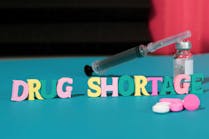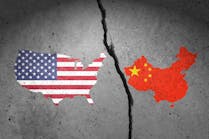Supply Chain may face post-pandemic challenges makeup-free
As the COVID-19 pandemic begins to wind down, many supply chain leaders are beginning to allow themselves a congratulatory sigh of relief, followed by a self-applied slap on the back for the heroic work they did during the crisis. Already, the tales of “how we snatched the rabbit out of the hat” and “I was really terrific” abound. Add to that the pompous and self-serving pronouncements from the so-called healthcare supply chain intelligentsia and one cannot help be giddy with the thought that after all the decades of being regarded a second-class citizen, the discipline is destined to rise to the top of the enterprise’s “Most Important Functions” List.
During the past 18 months, old phrases have been either re-named or dusted off. “Domestic manufacturing” has been renamed “on-shoring.” Farming stuff out to Canada, Mexico and Puerto Rico is now called “near-shoring.” Finding short-term alternative sources or implementing different approaches to treating diseases has contributed to the “Resilient Supply Chain.”
If nothing else, when a real crisis hits, we Americans are excellent at creating catchphrases that make us look as though we know what we are doing. Mull the popularity of the game, “Catchphrase.” The more educated people are, the more likely they are to use language as a way to “pump themselves up.” I once had a COO tell me, “Fred, we need to disambiguate this situation,” to which I responded, “Why don’t we just make things clearer?”
Big words and rose-colored glasses will not help you once the dust clears on COVID-19 or anything that follows. You must become realistic and skeptical, and you must not delude yourself if you want to survive after the pandemic dissipates.
Here is what you have to look forward to:
1. What was happening before the pandemic will continue, but at an accelerated pace. Prior to COVID-19, medium, small and even some very large healthcare systems faced financial failure or acquisition from competitors. That trend is only expected to continue. Those that know how to effectively compete in the dog-eat-dog real world will continue to get stronger. Those who don’t will become lunch. Take a hard look at your organization and honestly assess where it sits in the continuum. You need to be aware so you can be prepared to fight for your professional life. Expect the non-traditional “healthcare” companies like Walmart, Amazon, Walgreen’s and CVS – each loaded with billions of dollars and tons of expertise – to make your organization’s life miserable.
2. No one’s job is assured. There is an old saying that your job is only as secure as your boss’. Actually, it’s worse than that. Your job is only as safe as your boss’ boss’. Mergers happen. Generally, the team from the “winning” healthcare organization keeps their jobs while those from the “other” organization(s) are either out the door or demoted. Thirty-five years of faithful service means nothing when the excrement collides with the oscillating air-mover. Don’t allow yourself to get caught unaware. Trust no one. Prepare yourself for the worst. It is your best chance for survival.
3. Things are not going to change. The healthcare supply chain has never been a primary strategic component of the organization’s planning. Industry supply chains are absolutely indispensable to the fiscal success of the enterprise. Those supply chains are well-resourced and staffed by scores of key leaders with formal supply chain educations. With the exception of a very small number of truly visionary organizations, healthcare supply chains are generally staffed by one or two people at the top who have formal supply chain educations and a bunch of others who started out at the loading dock. And even the best-resourced supply chains are only mediocre at best when compared to their industry counterparts. Healthcare supply chains are transactional, generally with two of their key functions – contracting and logistics – outsourced to group purchasing organizations and distributors. The only times the Supply Chain catches the attention of the C-suite are (1) when the organization is significantly over budget, (2) when a crisis like the pandemic strikes or (3) when Doctor Jones can’t do surgery because the sales rep couldn’t get a purchase order for the unapproved implant he had in the trunk of his car. Other than that, the Supply Chain is simply overhead. Please wake up: Despite all the momentary hoopla associated with the pandemic, you’re not going to get the people you need, you’re not going to get the master supply chain assessment your organization needs, you’re not going to be given the title and decision-making freedom you need to make yourself truly relevant in the organization and your job is going to become even less secure.
Given these conditions, you only have one choice if you want to survive: You’ve got to become a fearless warrior for the truth. You must arm yourself with the truth and be prepared not only to tell the Emperor that he is not wearing clothes, but that he should probably drop 25 pounds as well.
Dig in and fight with your head up – or perish meekly.
Those are the only choices.






